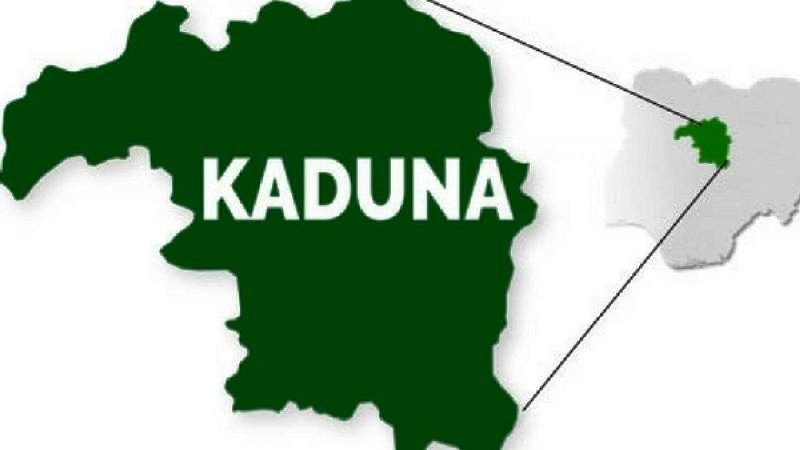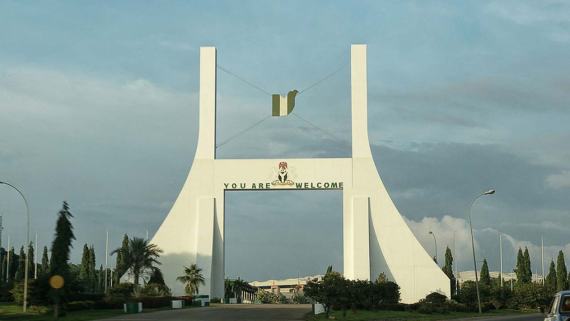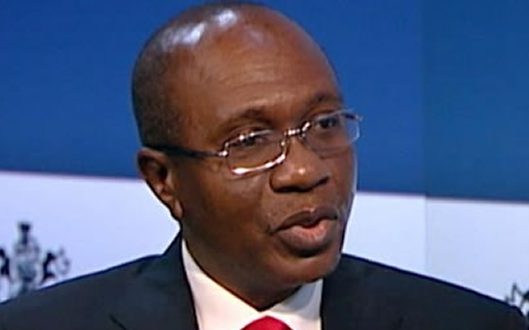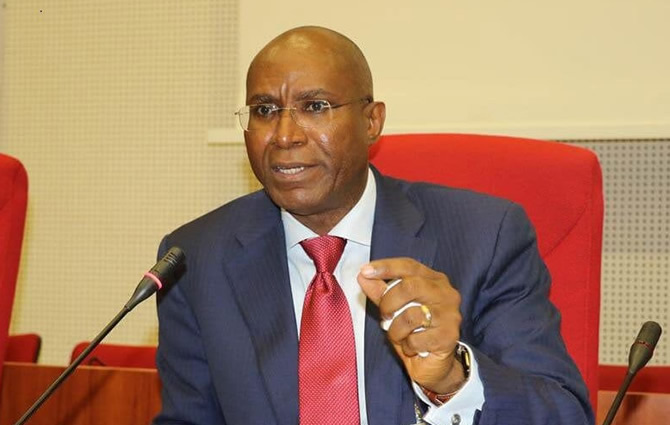….citizens insist El-Rufai must probe officials in charge of food Palliatives
…Civil servants lament contributions of N374,450,000 from salary
…Publish what you spent on Covid-19 prevention and management now, CSOs tell El-Rufai, other governors
By Emmanuel Bagudu
Predictions and prophecies by anti-corruption activists that the Covid-19 pandemic will be a fertile ground for aggravated corruption in Nigeria are already coming to pass. Corruption becomes inevitable in the Covid-19 era due to the scarcity of resources as well as disrupted supply chains of those resources caused by the painful but necessary quarantine laws also referred to as lockdown.
At the receiving end are petty traders whose means of livelihoods are largely dependent on daily income. Government at national and sub-national levels amass funds to fight the dreaded pandemic as well as make life easy for its citizens by providing palliatives in the form of either cash or kind. But the oliver-twist-like greed of some politicians and government administrators couldn’t allow them to resist temptation- the urge to steal and divert resources meant to reduce the pains citizens faced in the lockdown.
Here in Nigeria, among the citizens that suffered from these pains of syphoning of resources are Citizens of Kaduna State. With over N600 million generated funds from deducted salaries of civil servants, political office holders and donations from private companies, one will think the Kaduna State government has successfully tamed the pains of most of its vulnerable citizens during the seventy-five days lockdown in the state. But this was not so. This piece therefore explores and make bare the traces of corruption in the management of the so far over N600 million Covid-19 funds generated by Kaduna State during its seventy-five days Lockdown.
Instances of corruption in the Kaduna Covid-19 war are visible in the distribution of food Palliatives and the Non-disclosure of spendings on Covid-19 prevention and management.
Investigations show that the two phases of the food Palliatives distribution in the state which took place in April and May respectively were all marred by politicians and government officials.
Reports monitored by Thenewsguru. com (TNG) coming from members of civil societies as well as testimonies from a good number of citizens confirmed the failure of the state government in food Palliatives distribution.
This Investigation covered areas like Kakuri, Tirkaniya, Television Market, Ungwan Ma’azu (Kaduna South), Television Village, Television Garage, Nassarawa and Romi in the state Capital, Kaduna. TNG investigations also x-rayed outside the state capital where Citizens from Zaria, Soba, Saminaka, Zonkwa, Kafanchan and Kwoi where eligible citizens for the food Palliatives gave their story. All these areas apart from one person in Nassarawa community in Kaduna had respondents expressing bitterness on video recording interviews over the corruptions citizens witnessed during the food Palliatives distribution.
N500 Million was the cost of the entire food Palliatives in the state where eligible families captured in the social register are to be given at least food packs worth N11,000 each according to the state government. But the exercise didn’t happen that way. A lot of diversions took place. The register wasn’t used. “….it was a thug of war, in my area, there was suppose to be armed security men monitoring the strict regulations of sharing these palliatives, but no, officials just came and select who they liked and give what they like, people only got food in pieces not in packs as the government arranged….” Auwal Mohammed, a resident of Kakuri community in Kaduna stated in an interview. Mohammed also disclosed that he witnessed the sharing of the palliatives where he noticed that most people qualified for it were denied.
Hauwa Abdullahi a 53-year-old mother of three in Kakuri is among the supposed beneficiaries of the food palliatives. Her survival and that of her three kids depends largely on begging for alms. On several occasions, Hauwa finds herself in trouble with the Kaduna State Rehabilitation Board who are enforcing the ban on street begging laws created by Governor Nasir Elrufai. With the emergence of Covid-19 and its prevention strategies by the state government, Hauwa and her likes are in a double whammy; no begging for alms, no movement and more heart aching, no jobs because of the lockdown. Food Palliatives now remains the only option of survival for Hauwa. On hearing the announcement in April by the Kaduna government that food Palliatives will be distributed to reduce the sufferings of poor persons in the state during the Lockdown, Hauwa was very happy. But her happiness didn’t last because she didn’t get the food items. “…. I was asked to come out and join the line…. But the food didn’t get to me….” Hauwa said in the Hausa language. She was embittered. “Wanda Suka ci Suka koshi Suka yi amai, su aka ba, ba muba….” Hauwa added in Hausa, meaning, “only those who have eaten enough and have vomited, got the food Palliatives, not us”.
From Kakuri to Barnawa, to Ungwan Ma’azu, Television Village, Tirkaniya, Romi, and other towns in the outskirts of Kaduna metropolis, the story is the same. The Injustice in the sharing of food Palliatives was very conspicuous. Mr. Jude Okoh, a truck driver who was given the food Palliatives to take to Barnawa and Television Village narrated how officials diverted the food items in their favour. In his words, “…. I am among the people that carried the food Palliatives for Barnawa here… my brother it was war….one woman before my presence, right in front of me without shame came with Siena bus and load more than thirty(30) Cartons of different food items, she was even fighting with those civilian JTF who were there to maintain law and order….” Okoh said. Mr Okoh also narrated how he was instructed to pick some of the food items and deliver to Churches without the protection of security personnel. “….we carried some of the foodstuffs, dropped in ECWA church, Television Village, in Anglican Church, and in some other churches. The next day we returned to witness the sharing …some women only got one (1) cup of rice. Some stayed the whole day on the queue but saw nothing” Okoh said.
For his part, Malam Hamza a popular shoe seller in Television Market, said it was a pathetic situation. “It’s not that I was told, no, I witnessed the sharing of the palliatives in my area, two in every ten vulnerable persons did not get the palliatives …. I saw someone being given three (3) pieces of noodles, (not carton), another was given two (2) pieces, I saw a group of five persons given one (1) carton of noodles to share…. I even went to other places where the palliatives are shared, I saw over two hundred persons, but the food that was brought to the place can only serve three persons…. how will two hundred persons jostle for food meant for only three persons….” Hamza said while speaking in Hausa.
Communities outside the State Capital witnessed the second phase of Palliatives Distribution. Although the Secretary to the Kaduna State government Balarabe Lawal stated that there was no rancour in the second phase, officials still diverted the food items. In Soba, residents express gratitude to the government but reported acts of Injustice by officials. “It was a party affair, if you are not from their Party, you will not get the food Palliatives….” Mairo Inuwa a food vendor in Soba said in an interview. Residents of Saminaka, Zonkwa, Kafanchan and Kwoi made the same complain. “The palliatives showed the government have the people in mind, but some corrupt officials will not let people eat….” Mr Gaius Manzo a civil servant in Kafanchan said in an interview. Mr. Manzo said civil servants in the state are not happy seeing that the 25% deduction of their salaries is being played with. “….you will recall that we contributed over N300 million to this war against Covid-19 when they government said it will deduct 25% of our salary for the months of April and May…but look at how some politicians are busy diverting the food Palliatives, the governor and the SSG (referring to Secretary to the state government) should please probe these Palliatives Distributors to avoid future occurrence….” Manzo said.
Another glaring instance of corruption in the management of Covid-19 funds in Kaduna is the Non-disclosure of spendings for the pandemic. Those that Contributed over N600 million Naira for the war against Covid-19 deserve to know what the money is used for. Questions need to be asked. Government openness and Transparency must come to play and Kaduna State being the pioneer of the Open Government Partnership (OGP) in Nigeria should not in any way be found wanting in area of openness. Only N500 million for food Palliatives was disclosed. Citizens deserve to know the cost of testing, and maintenance of Isolation centres. Nondisclosure of spending these funds is termed as corruption as declared by the Federal Government’ framework for managing Covid-19 Funds (FMIC). Paragraph two of the objectives of the FMIC states that the “…Framework is… designed to articulate the measures put in place by Government for the transparent and accountable management of COVID-19 Donor Funds as an expression of its commitment towards bridging the trust gap.”
Though the Framework is designed by the Federal Government, the government of Kaduna State which signed to the OGP should see this framework as a way of meeting its obligation as an OGP compliant state. On transparency, the framework states that “…..Failure to publish timely report of COVID-19 activities in the prescribed format and at the stipulated intervals or to respond to FOI request will constitute early warning signs of mismanagement….”
Once Kaduna government key into the FMIC like the way it started the OGP, it will sustain its reputation. Kaduna has about three testing centres presently; the DNA laboratory, Ahmadu Bello University Teaching Hospital Zaria, and a new community testing vehicle.
TNG also gathered that the Infectious disease control centre (IDCC) Kakuri which has been upgraded to an isolation centre also conduct Covid-19 tests.
Apart from the IDCC Kakuri, Hamdala motel is another isolation centre while the Barrau Dikko Teaching Hospital also has an isolation unit.
Recall that all Federal Stadia were to be used as isolation centre and Ahmadu Bello Stadium Kaduna was to be used as isolation centre but nothing of such is happening there.
It would also be recalled that the first set of covid 19 positive patients in Kaduna State with the Governor Malam Nasir el-Rufai being the index case were all attended to by health workers in an undisclosed private facility except for the governor who disclosed that he was being attended to in an arm of the government house by health workers. The IDCC is equipped with ventilators but no one knows whether the other isolation centre at Hamdala motel has ventilators, it is not impossible however following reports of ventilators donation to the state government recently.
The extent to which the isolation centres are equipped and amount spent on such is also not disclosed.
Conclusion:
Advocacies by the Civil Society Communities on asking questions about Covid-19 spending must be taken serious. Two civil societies in Nigeria; “Budgit” and “Socio-economic Rights and Accountability Project (SERAP)” have been calling on government at national and sub-national (state) level to desist from the habit of non-disclosure of spendings. Budgit sometimes in the end of June disclosed in their Twitter handle that “so far only Oyo State has disclosed how much it spent on Covid-19” and by July 3; just few days later Kwara state released how much it spent on Covid-19 too. For SERAP, it’s a daily routine. They seek explanation on all funds spent. This kind of advocacies is the way forward. Nigerians must keep asking these questions until they get very good and well comprehensive answers.



